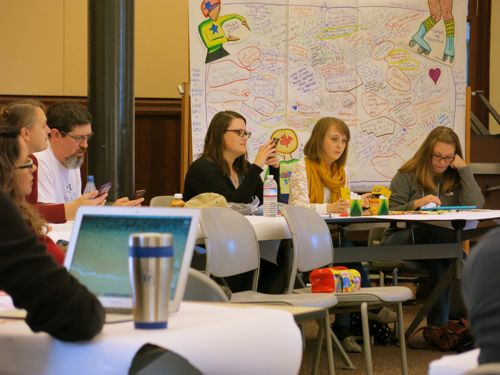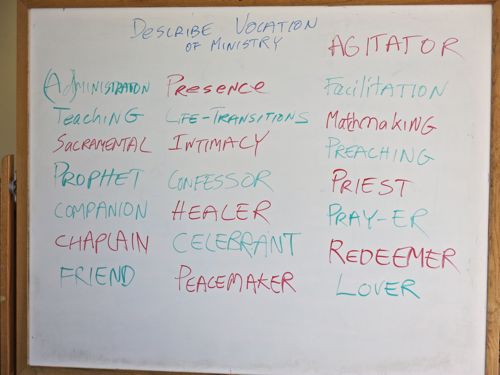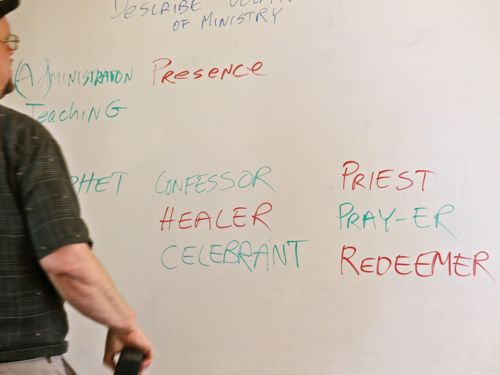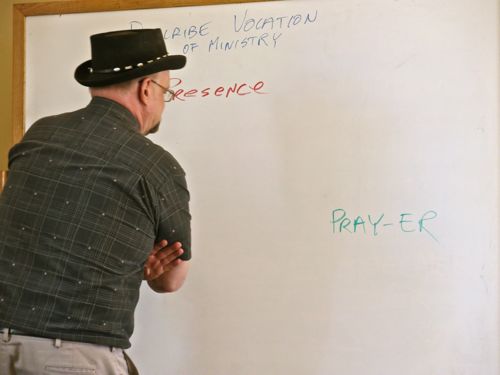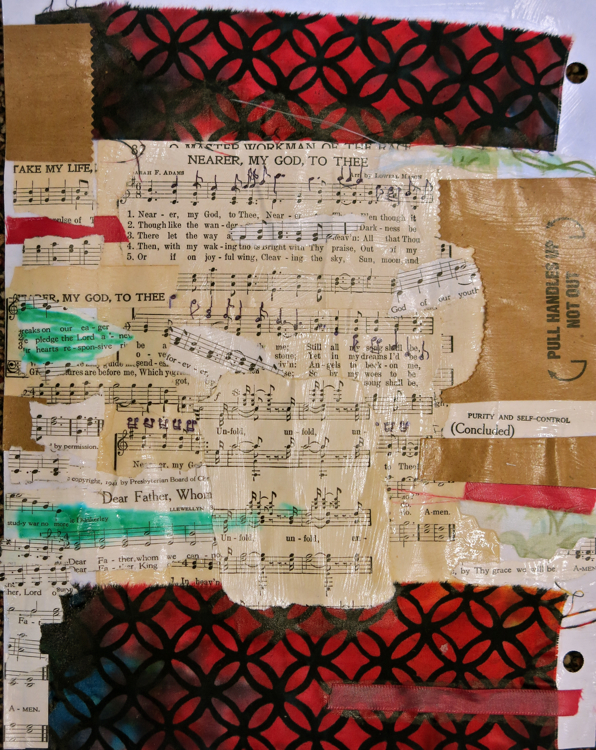The last session I attended at UNCO 14 West was the session on the spiritual and mental health of pastors on Wednesday morning.
The purpose of the Wednesday morning breakout sessions is to figure out what “has legs,” that is, which of the ideas that emerged during UNCO are worth following up on. One of the key ideas that came up during UNCO 14 West was the idea that innovative ministries need to find new funding sources. This is an important step in the evolution of Unco, as Carol Howard Merritt tweeted: “#unco14 discussions at year 5: We have gone from complaining to dreaming to planting. Now we’re looking at funding. It’s really beautiful.”
And I think the idea that we need to support the mental and spiritual health of pastors engaged in innovative ministries is just as important the idea that we need to support the financial health of innovative ministries. Ministry is, in many ways, an essentially conservative profession: we are supposed to conserve the tradition of which we are a part. My own denomination is theologically liberal, but methodologically conservative and risk-averse: a few innovative ideas have been given the imprimatur of the denominational bureaucracy, but most other innovation is ignored. I’d guess my denomination is typical of all mainline denominations.
And what happens if a minister or lay leader tries innovation goes beyond the innovative allowed by the bureaucracy? What happens when a minister or lay leader tries something risky? Well, because of the conservative nature of ministry, and because of the conservative nature of denominations, anyone who goes beyond the allowed limits of innovation had better be well-connected. If you are well-connected, if you have friends in powerful positions, your innovation may be allowed, and if it is allowed, it will likely be funded. But if you are not well-connected, you may well feel like the goat in Leviticus 16 who gets sent into the wilderness: “The goat shall bear on itself all their iniquities to a barren region; and the goat shall be set free in the wilderness.” [Lev. 16.22, NRSV]
Innovative and/or risky ministries are stressful enough in and of themselves. If you are engaged in innovative ministries but are not well-connected within your denomination, you are likely to feel more stress, and have less support. You are also less likely to be held accountable in appropriate ways, and your ministries may well be judged by the wrong standards. This is a recipe for burn-out. I suspect that pastors engaged in innovative ministries are at higher risk for mental illness, something that is already an occupational hazard of professional ministry.
This would suggest that those who are engaged in innovative ministries need additional support. In our breakout session on Wednesday morning, we brainstormed a few ideas: setting up some kind of online chaplaincy for UNCO participants; mutual support and accountability groups meeting via Google Hangouts or Skype; continuing to offer face-to-face support at UNCO; etc. We’ll see which of these ideas “has legs” and will turn into a reality.
But there is a need: innovative ministers need appropriate accountability and sympathetic support.

